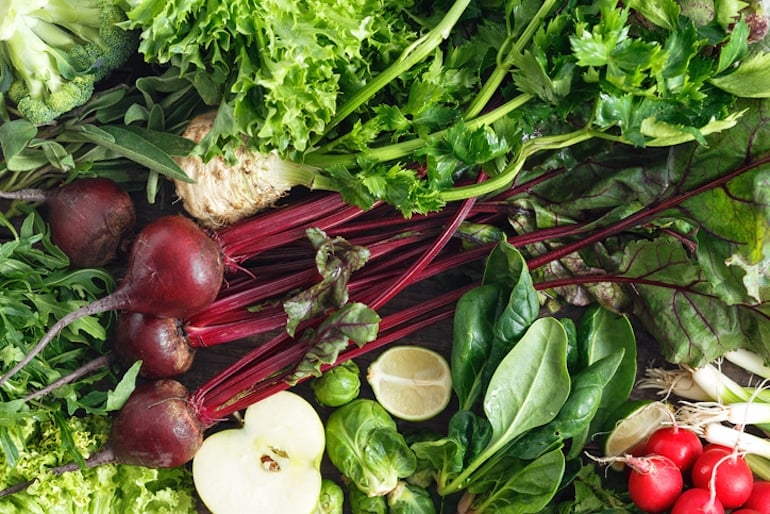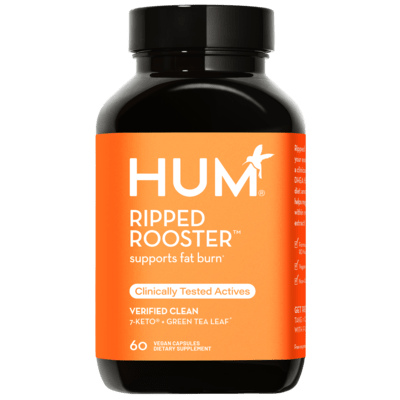Medically Reviewed By
Gaby Vaca-Flores, RDN, CLE
Registered Dietitian Nutritionist
Jessica Bippen, MS, RD, sheds light on how nitric oxide benefits your respiratory health. Plus: additional nitric oxide benefits for health and three simple ways to boost your levels.
Nitric oxide probably isn’t the first thing that comes to mind when you think of respiratory health. In fact, you may have never even heard of it before. But it’s about time that changes!
Nitric oxide benefits your body in numerous ways, including supporting your respiratory and immune systems. It also impacts the energy production in your cells, and dilates your blood vessels to improve circulation and muscle recovery. Keep reading to learn more about this compound found in your body, its role in respiratory health, and how to increase your levels naturally.


What is Nitric Oxide?
Before we dive in, let’s make it clear we’re not talking about the laughing gas you inhale at the dentist’s office. That’s nitrous oxide. While both are composed of nitrogen and oxygen, nitric oxide is one molecule of nitrogen and one molecule of oxygen. Alternatively, nitrous oxide has two molecules of nitrogen and one molecule of oxygen. The extra molecule of nitrogen changes the gas completely. Now that we’ve cleared that up, let’s take a deeper look at nitric oxide. This naturally occurring compound is made in the body out of the amino acid arginine, as well as the nitrates in your diet. It wasn’t until 1998 that scientists realized the importance of nitric oxide in the body. Three scientists were awarded the Nobel Prize after discovering that it’s a key molecule in the cardiovascular system, helping keep blood vessels healthy and regulating blood pressure. Since then there have been over 60,000 studies done on nitric oxide, revealing its essential role in many other bodily systems including the respiratory system, immune system, muscles, and brain.
Nitric Oxide for Respiratory Health
Nitric oxide may be best known for its role in heart health and maintaining healthy blood pressure. But the underrated role it plays involves the respiratory system. Within the respiratory system, nitric oxide promotes the dilation of the blood vessels and the airways to the lungs. The release of nitric oxide in the system also signals mucus secretion and neurotransmitters located in the bronchial wall to support proper lung function. As you can see, to breathe properly, nitric oxide is pretty important! In addition, newer research uncovers a new role nitric oxide plays in respiratory function. Studies suggest that nitric oxide signals red blood cells to release the oxygen they carry to the body’s tissues. Without nitric oxide, the cells aren’t able to use the oxygen delivered to them. The nitric oxide enables the blood vessels to open and supply oxygen to tissues. Due to this important role in respiratory health, current trials are looking at how inhaled nitric oxide can support those whose respiratory system is compromised. When lungs are failing, some body parts receive oxygen, but not others. It’s thought that the intake of nitric oxide gas improves blood flow in areas of the lungs that are getting air, and therefore increasing the amount of oxygen in the bloodstream. If this trial works, it has the potential to save lives.Additional Nitric Oxide Benefits
In addition to its benefits for the respiratory system, nitric oxide plays a role in cellular communication and transmitting signals throughout the entire body. Some of its main functions include:- Supporting brain function and memory by transmitting information between nerve cells in the brain
- Assisting the immune system by fighting off bacteria
- Regulating blood pressure by dilating arteries
- Supporting respiratory function
- Improving sleep quality
- Improving sense of smell
- Supporting exercise performance and muscle recovery

How to Naturally Increase Your Nitric Oxide Levels
With all these nitric oxide benefits, it almost sounds too good to be true. But unfortunately, the body’s nitric oxide production starts to decrease as you age, beginning in your mid-20s. Luckily, it’s easy to support your natural production to reap nitric oxide benefits. How, you ask? Simply eat more nitrate-rich foods, boost your antioxidant consumption, and exercise.Food Sources of Nitric Oxide
Your body produces nitric oxide from nitrates found in foods. For that reason, it’s smart to focus on plant-based sources of nitrates like those in leafy greens and beets. Foods that increase nitric oxide via nitrates include:- Celery
- Lettuce
- Beetroot
- Spinach
- Arugula
- Radishes
- Turnips
- Watercress
- Bok choy
- Onion
- Garlic
Increase Antioxidant intake
Nitric oxide is considered an unstable molecule since it quickly degrades in the bloodstream. Your body must constantly replenish its supply for it to perform its beneficial functions. Antioxidants help stabilize the nitric oxide molecule and limit its breakdown. Therefore, consuming antioxidant-rich foods help you get the most from your nitric oxide. Plant-based foods such as fruits, vegetables, nuts, seeds, and grains contain the most antioxidants. However, you don’t have to go out of your way to get them. Good sources of plant-based nitrates are also high in antioxidants, making it easy for you to get the benefits of the nitric oxide in your food. Still, antioxidants support your body in numerous ways, so it doesn’t hurt to incorporate more into your diet! Some main antioxidants that can help stabilize nitric oxide include vitamin C, vitamin E, polyphenols, and glutathione. Food sources of these antioxidants include:- Strawberries
- Kiwi
- Citrus
- Sunflower seeds
- Almonds
- Chocolate
- Red wine
- Avocados
- Spinach
- Okra
Exercise regularly
Exercise naturally supports nitric oxide production by improving how well your blood vessels function. When you exercise, your heart rate increases. This causes blood to pump faster throughout your body. The additional pressure on the blood vessel walls triggers the production of nitric oxide. In turn, this helps the blood vessels dilate to allow for increased circulation. Studies have also shown that exercise increases antioxidant activity, which helps slow the breakdown of nitric oxide. While all exercise benefits your body, focusing on cardio exercises that increase your heart rate best supports nitric oxide production. For best results, try combining cardio like jogging, cycling, or HIIT with resistance training multiple times throughout the week. Doing so will help give you a variety of workouts you enjoy and a long-term plan you can stick to.The Bottom line
Nitric oxide plays an important role in your overall health, including a unique role in supporting respiratory health and your immune system. By focusing on what you eat and committing to daily movement, you can boost your natural nitric oxide production. The best methods are consuming a plant-based diet rich in plant-based nitrates, antioxidants, and arginine, as well as exercising regularly.More like this









